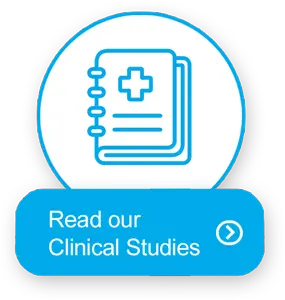
As a clinician who prescribes medication, you take into consideration many elements from a patient’s clinical profile when determining what medication to prescribe, including the patient’s symptoms, possible comorbidities, family history, potential side effects, and many other factors.
However, what happens when you’ve taken all those factors into consideration and your patient still fails an antidepressant? And then the next one? And the next one?
As you may have experienced, this can happen in a number of cases. The Sequenced Treatment Alternatives to Relieve Depression (STAR*D) project has shown that the response rate for antidepressants for treatment-naïve patients is around 50%. This means that for every ten patients treated for depression, five will respond.
The numbers get worse the more treatment attempts that are made. According to the STAR*D study, remission rates were:
- 6% for the second treatment
- 7% for the third treatment
- and 13.0% for the fourth acute treatment steps.
Additionally, the study found that “those who required more treatment steps had higher relapse rates during the naturalistic follow-up phase.”
Treatment-resistant depression can cause frustration for you – and your patients.
When Antidepressants Fail

A 2016 book called Still Down: What to Do When Antidepressants Fail by Dr. Dean F. MacKinnon, a psychiatrist at The Johns Hopkins University School of Medicine, suggests that scientists are still trying to pinpoint why antidepressants work for some, but not other patients.
“The brain is a complex organ, and what transpires within it often is mysterious,” suggests Dr. MacKinnon.
When patients relapse, Dr. McKinnon writes that one of the things that he has found in his more than two-decade career in treating patients is that too few people ask the question “Why did the standard treatment not work for this person?”
Promising Depression Research
Researchers today are asking that question.
In a study, a team of scientists from the Salk Institute and Mayo Clinic may have found that there are common biological reasons behind why patients fail common antidepressants, such as SSRIs (Selective Serotonin Reuptake Inhibitors). The researchers took an innovative approach to their investigation – taking skin cells from more than 800 people with major depression and turning them into stem cells.

Senior Study Author Fred H. Gage, president of the Salk Institute, and professor at its Laboratory of Genetics, said that this study “suggests that other drugs, such as serotonergic antagonists, could be additional options for some patients.”
Using Genetics to Fight Depression
As researchers look for new antidepressants by investigating the underlying cause of depression, pharmacogenomics is providing genetic insights that may inform a healthcare providers’ medication decisions.
Pharmacogenomic tests (like the GeneSight Psychotropic test) use an integrated approach that accounts for multiple pharmacokinetic and pharmacodynamic pathways.

- All known CYP450 and non-CYP450 metabolic pathways of each medication and medication metabolite, weighted for their relative importance
- The pharmacodynamic activity levels of the parent compound and any active metabolites and genetic variation that may impact pharmacodynamic activity, incorporating known clinical considerations
- Validated research regarding all known functionally significant alleles in all relevant weighted genes
- FDA labeling information related to genetically mediated efficacy or tolerability of a medication
This combinatorial pharmacogenomic approach uses knowledge of each medication’s unique set of pharmacokinetic and pharmacodynamic characteristics to incorporate and appropriately weight genetic variation at multiple loci to produce more accurate predictions of patient response than testing solely for the primary metabolic pathway of a medication.
If you are interested in learning more about pharmacogenomics and clinical trials supporting the GeneSight Psychotropic test, you can read more at https://genesight.com/for-clinicians.
Our articles are for informational purposes only and are reviewed by our Medical Information team, which includes PharmDs, MDs, and PhDs. Do not make any changes to your current medications or dosing without consulting your healthcare provider.
The GeneSight test must be ordered by and used only in consultation with a healthcare provider who can prescribe medications. As with all genetic tests, the GeneSight test results have limitations and do not constitute medical advice. The test results are designed to be just one part of a larger, complete patient assessment, which would include proper diagnosis and consideration of your medical history, other medications you may be taking, your family history, and other factors.
If you are a healthcare provider and interested in learning more about the GeneSight test, please contact us at 855.891.9415. If you are a patient, please talk with your doctor to see if the GeneSight test may be helpful.





